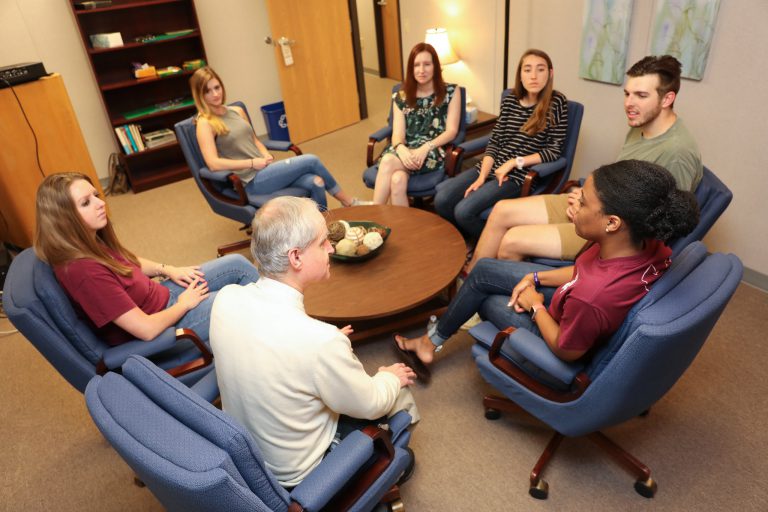Supervision & Training

Quality supervision is seen as the cornerstone of our training program and is highly valued by the staff. Each intern is supervised by two or three licensed psychologists, one for the fall semester, one for the spring semester, and the possibility of switching to a third in the summer. Intern preferences and training needs are strongly considered in the selection of supervisors. Primary supervisors meet for an hour every other week with the training director to consult regarding training issues and to collaborate to enhance the supervisory process. Reviewing client cases, video recordings and intern professional growth and development are important areas of focus for individual supervision. Primary supervisors monitor the developmental level of interns to ensure they are given challenges that fall within their zone of proximal development. While primary supervisors and the training director take responsibility for ensuring that intern tasks are sequential, cumulative and graded in complexity, most professional staff members will interface with interns in some capacity during the course of the year. Unscheduled, consultative interactions occur regularly in crisis intervention situations, co-facilitation of groups, co-therapy and case conference.
Interns co-lead groups with licensed staff members. Each week, they meet with the co-leader for 30 minutes prior to the group and 30 minutes after the group to prepare for and discuss the group. Topics range from discussing group dynamics and specific participants of the group to the intern's growth and process as a group facilitator. While co-leading groups is always a collaborative process, senior staff tends to be more active than trainees at the outset of the group. After interns have become more comfortable and demonstrated their proficiency, they take on a more active role.
Fall and spring semester when possible
Developing future supervisors is a strong value of our internship at University Health Services. When practicum student numbers allow, our interns supervise a practicum counselor during both the fall and spring semesters. Interns meet each week with the practicum coordinator and training director to discuss their development as supervisors. Common issues considered include establishing the supervisory relationship, setting/tracking expectations and goals, use-of-self in supervision, multicultural dynamics and any challenges that arise. Video recordings of supervision sessions are often viewed in this group supervision setting.
Interns are expected to spend at least two hours per week preparing for supervision. Activities during this time include reviewing video recordings, managing documentation, consulting with staff, reading and reviewing issues they would like to discuss with their supervisor. We have noticed that at the beginning of the internship, trainees spend more time on documentation. Over time, they become more familiar with best practices around documentation and are able to complete these tasks more efficiently.
During years that an insufficient number of practicum students are available, supervision preparation time may be decreased or eliminated.
Interns meet weekly as a group with the training director. Interns openly discuss all aspects of the internship such as quality of intern seminars, case management concerns, staff/intern relationships and professional development issues.
The bi-weekly case conference meeting provides an open forum for interns and professional staff members to share and consult regarding current counseling cases. Through case conference, interns gain insight into how other professional staff members conceptualize client issues and deliver direct service. The composition of the case conference groups changes regularly, which allows interns to interact with most of the professional staff in a small group format during their training year.